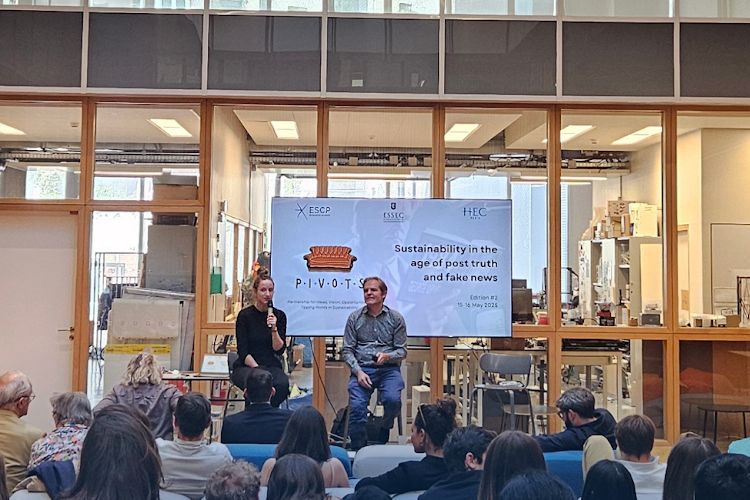120 students. Three institutions. One question: how do we challenge climate disinformation and rebuild public trust?
From May 15-16, 2025, students from ESCP Business School, ESSEC Business School and HEC Paris came together at the Learning Planet Institute in Paris for the second edition of PIVOTS (Partnership for Ideas, Vision, Opportunities, and Tipping Points in Sustainability), a cross-institutional learning initiative that invites students to challenge complex sustainability dilemmas through creativity, collaboration, and critical reflection.
This year’s theme, “Sustainability in the Age of Post-Truth and Fake News,” asked students to engage with a critical and timely question: how does disinformation shape public understanding, delay climate action, and undermine our collective response to the ecological crisis?
Disinformation as a sustainability challenge
“Post-truth and fake news are now an integral part of the societal landscape,” says Professor Aurélien Acquier, co-organiser of the event and ESCP Professor of Strategy and Sustainability. “And ecological issues are right at the eye of the storm, with explicit political and media attacks on Earth system sciences like climate change and biodiversity.”
Throughout the programme, 120 students—40 from each school—worked in mixed teams to explore how disinformation circulates through different parts of society. Each group was assigned to one of five “Universes”: Scientific Community, Big Corporations, Civil Society, Digital Media and Governments. These Universes served as both case studies and creative prompts.
Before the in-person event, students participated in online masterclasses led by faculty from the three institutions, providing a shared academic foundation. Topics included media dynamics, trust-building, public perception, and the philosophy of post-truth.
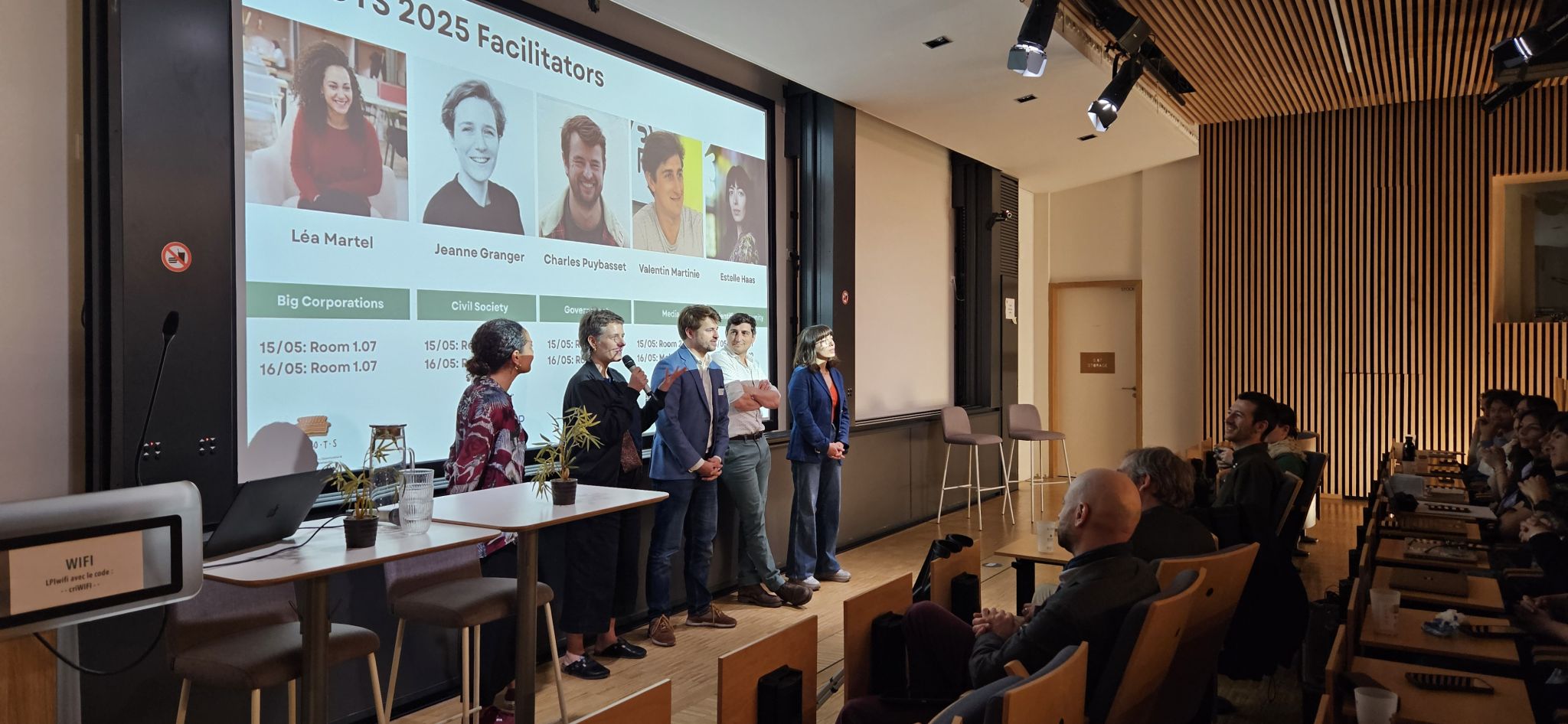
“The two-day format of the event was amazing, as it allowed us to connect in a stimulating, fast-paced environment,” said Zoé Mineret, an MSc in International Sustainability Management student at ESCP. “It was also a fantastic opportunity to meet like-minded peers from different institutions and exchange learning and knowledge.”
This year’s programme was co-led by Aurélien Acquier (ESCP), Alexis de La Tour du Pin (ESSEC), Pauline Laravoire (HEC Paris) and drew on contributions from a diverse range of experts across institutions and sectors, including:
- Professors Erwan Lamy, and Gorgi Krlev (ESCP)
- Professors Emmanuelle Le Nagard and Anne-Claire Pache (ESSEC)
- Professor François Gemenne (HEC)
- David Chavalarias (Research Director, CNRS)
- Lou Welgryn (Executive Director, Data for Good)
- Thomas Huchon (Journalist)
Post-truth and fake news are now an integral part of the societal landscape. And ecological issues are right at the eye of the storm, with explicit political and media attacks on Earth system sciences like climate change and biodiversity.
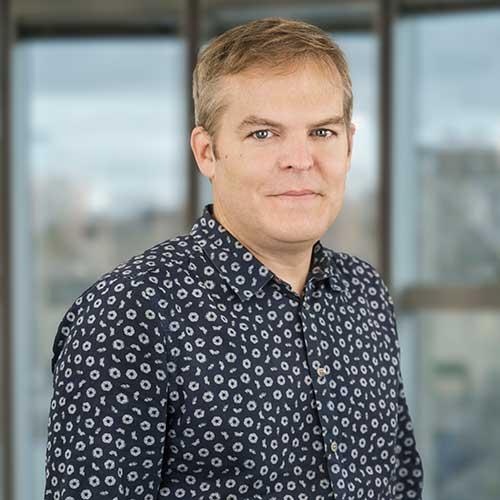 Aurélien Acquier
Aurélien AcquierPIVOTS co-organiser and ESCP Professor of Strategy and Sustainability
From theory to creative practice
The event design merged analytical rigour with creative expression. Each group was tasked with preparing a final presentation that would diagnose the influence of misinformation within their Universe—and propose a strategy or intervention to address it.
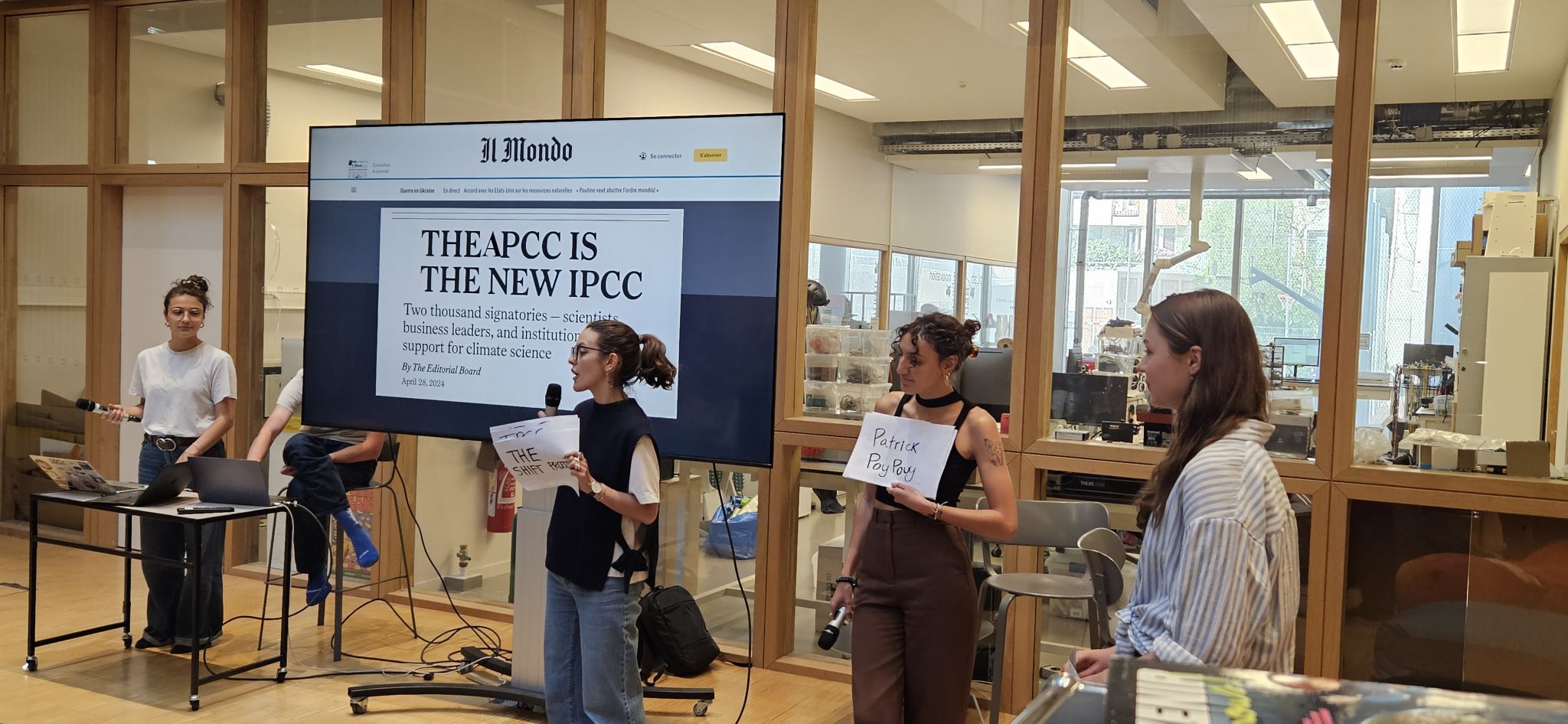
Acquier described the PIVOTS format as a necessary departure from traditional classroom teaching. “It’s a transdisciplinary challenge that touches media, politics, history, epistemology—even the question of whether we can agree on something called ‘truth.’ That’s why we opened the classroom to external experts like David Chavalarias, who studies conspiracy dynamics and their effect on democracy.”
Acquier noted that the approach encouraged students to think critically and express their insights in unexpected ways. “The creative format is a way to navigate the complexity of the topic, to improve understanding and explore new innovative solutions.”
“For my group's final presentation, we wanted to highlight how scientific disinformation should be tackled from two angles. It should tackle both the source of disinformation and include literacy initiatives to reduce the public's susceptibility to disinformation,” said Mineret. “We aimed to present a solution that addressed the supply, demand, distribution, and uptake of disinformation.”
Key takeaways from PIVOTS 2025
A recurring reflection across all groups was the realisation that it is actually much easier to create fake news and explore its damaging effects than it is to mitigate the risks with concrete solutions. “After the presentations, students kept saying, ‘Wow… it’s much easier to create fake news than to solve it,’” said Acquier. “That, in itself, is a perfect snapshot of where we are as a society.”
Alice Kreziak, a student in the MSc in International Sustainability Management programme at ESCP, had one big takeaway about individual agency and empowerment. “We, as individuals, have both the power and the duty to think critically, challenge information, and question stand-alone claims. We need to demand sources and consensus,” she shared. “I left the event more convinced than ever of the need to push research forward and stay alert to how quickly fake news can spread.”
Mineret also reflected that she had learned a lot from the experience and was particularly impacted by David Chavalarias’s insights. “He gave us concrete answers with data on the uptake of misinformation on social media and actionable tools and solutions, such as leaving social media platforms and choosing to connect with people in alternative ways.”
We, as individuals, have both the power and the duty to think critically, challenge information, and question stand-alone claims. We need to demand sources and consensus. I left the event more convinced than ever of the need to push research forward and stay alert to how quickly fake news can spread.
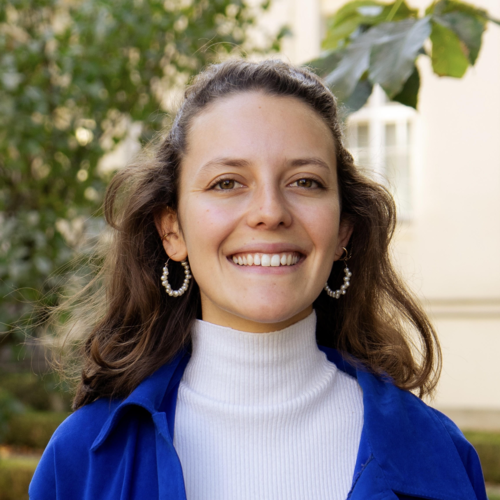 Alice Kreziak
Alice KreziakMSc in International Sustainability Management student
Collaboration across schools and perspectives
One of PIVOTS’ most distinctive features is its inter-institutional design. Students across schools worked together to navigate ambiguity, negotiate meaning, and build shared proposals in compressed timeframes.
“Working in a large team to create a plausible but deliberately flawed scenario was an exciting challenge. It wasn’t always easy—decision-making and creativity in big groups can be tricky—but the moments of collective intelligence and the reward of co-creation made the headaches worth it,” said Kreziak.
It was an amazing opportunity to meet and collaborate with other people, understanding how sustainability allows us to build bridges between each other and connect with more purpose.
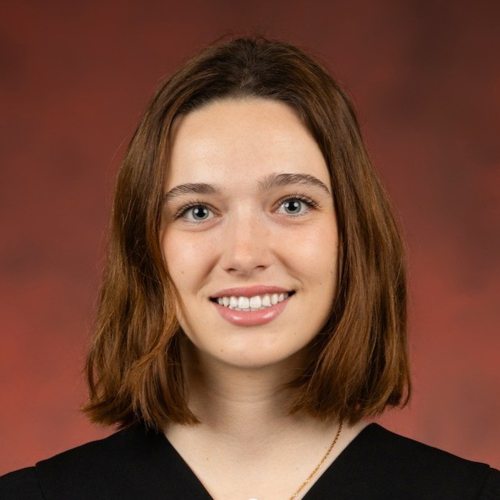 Zoé Mineret
Zoé MineretMSc in International Sustainability Management student
Attendees walked away with a deeper understanding of what’s possible when education is creative and bold. “It was an amazing opportunity to meet and collaborate with other people, understanding how sustainability allows us to build bridges between each other and connect with more purpose,” said Mineret.
Reflecting on the purpose of an event like PIVOTS, Acquier framed it not only as an academic exercise, but a call to agency. “We shouldn’t accept fake news and post-truth as a given,” he said. “Yes, there are structural and political issues—but there’s also individual responsibility. As future managers, our students have the power to question, explain, and challenge obviously biased platforms. They also have a role to play in making alternative systems emerge.”
As future managers, our students have the power to question, explain, and challenge obviously biased platforms. They also have a role to play in making alternative systems emerge.
 Aurélien Acquier
Aurélien AcquierPIVOTS co-organiser and ESCP Professor of Strategy and Sustainability
Relevant links
Campuses
